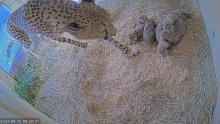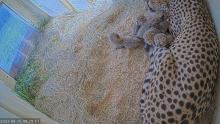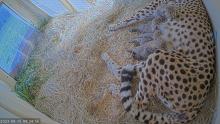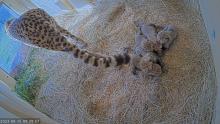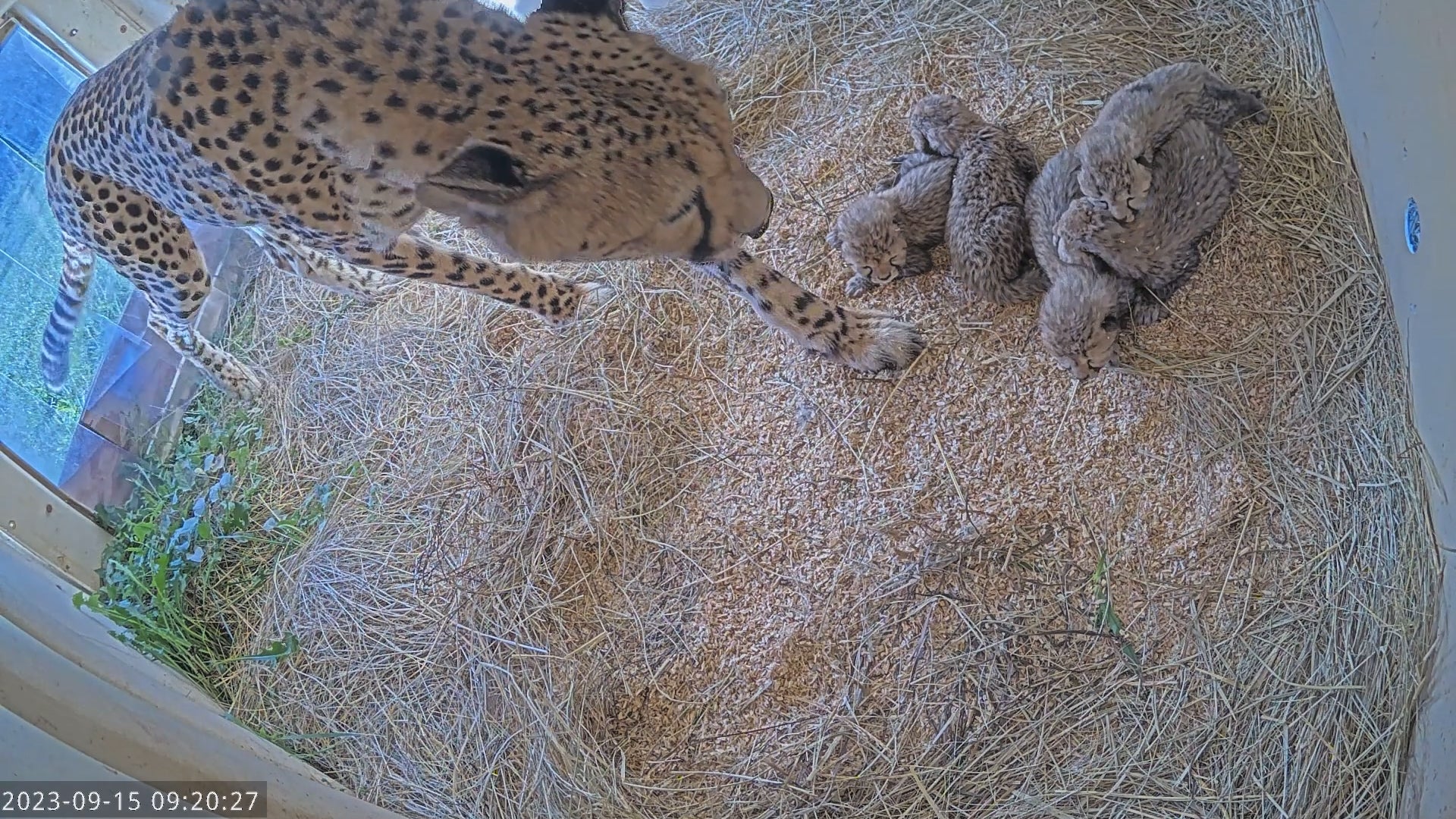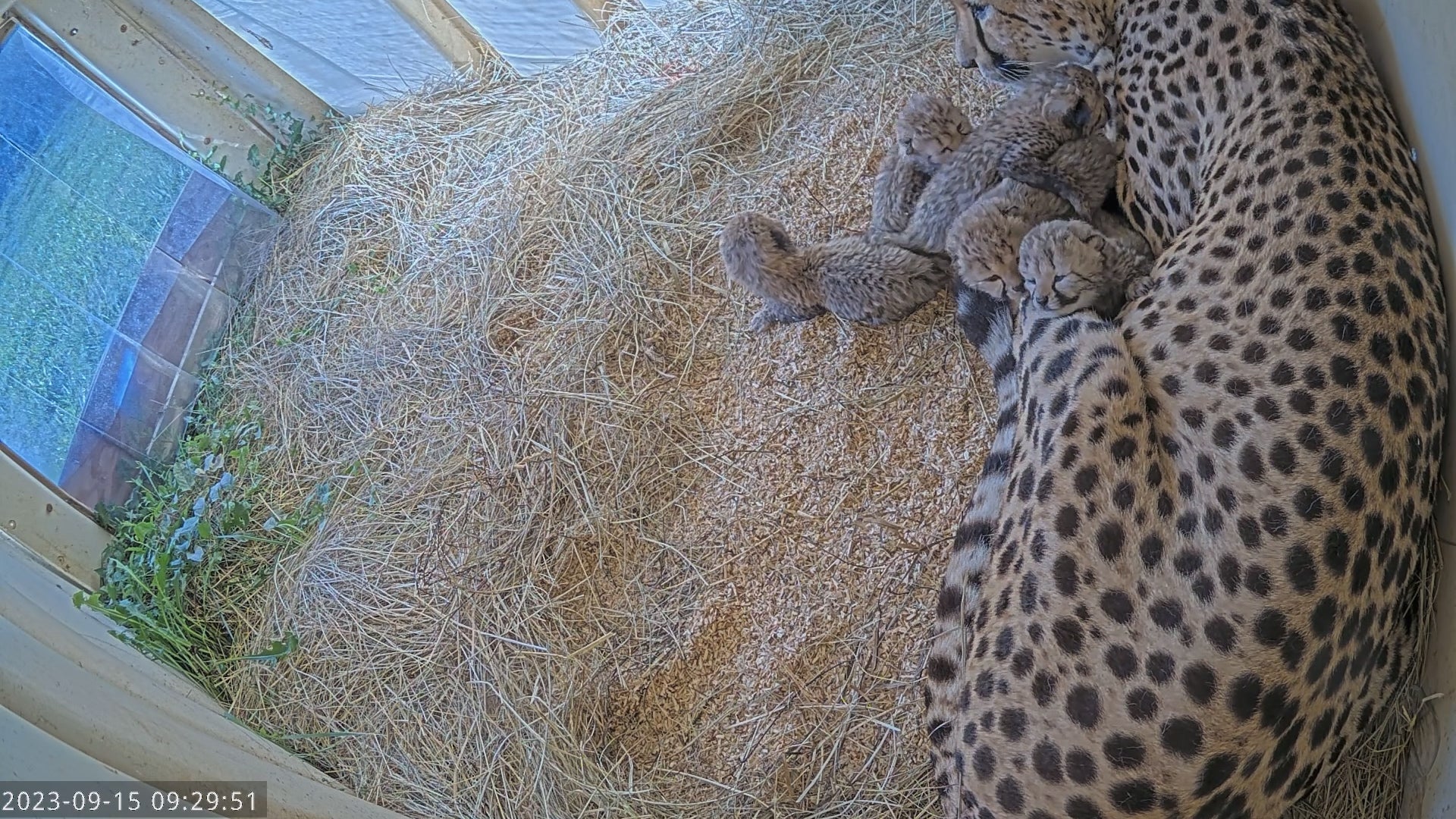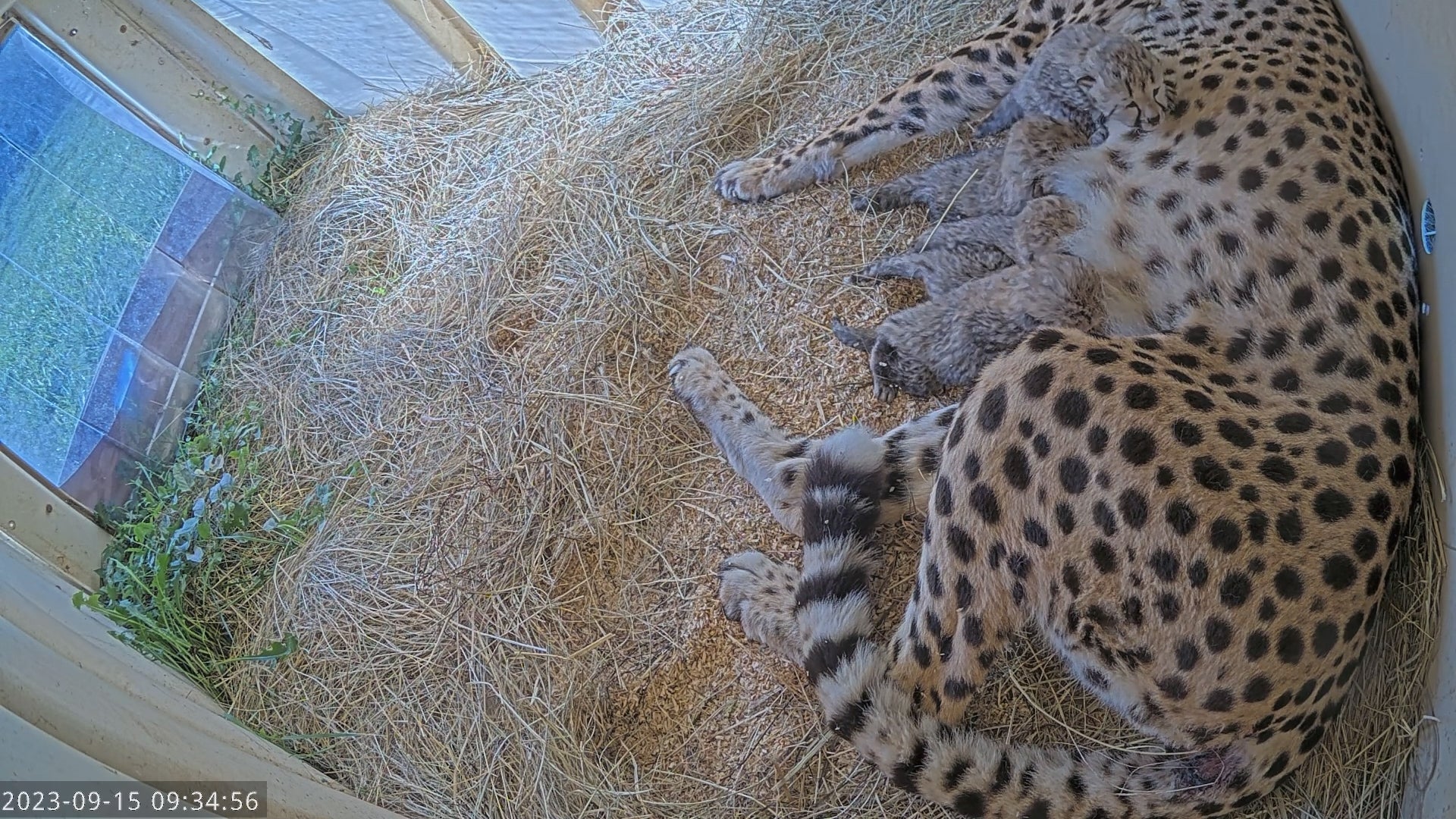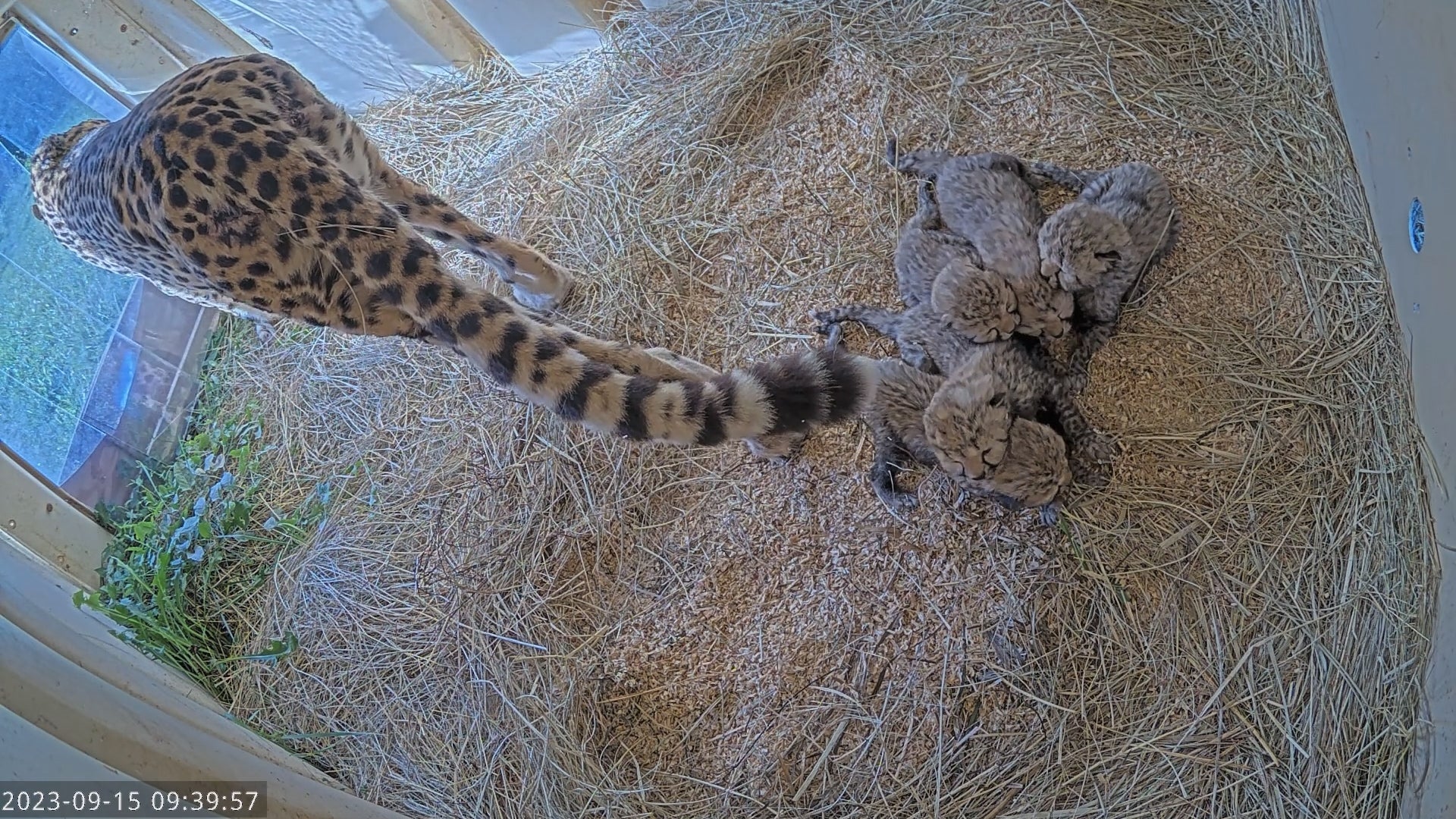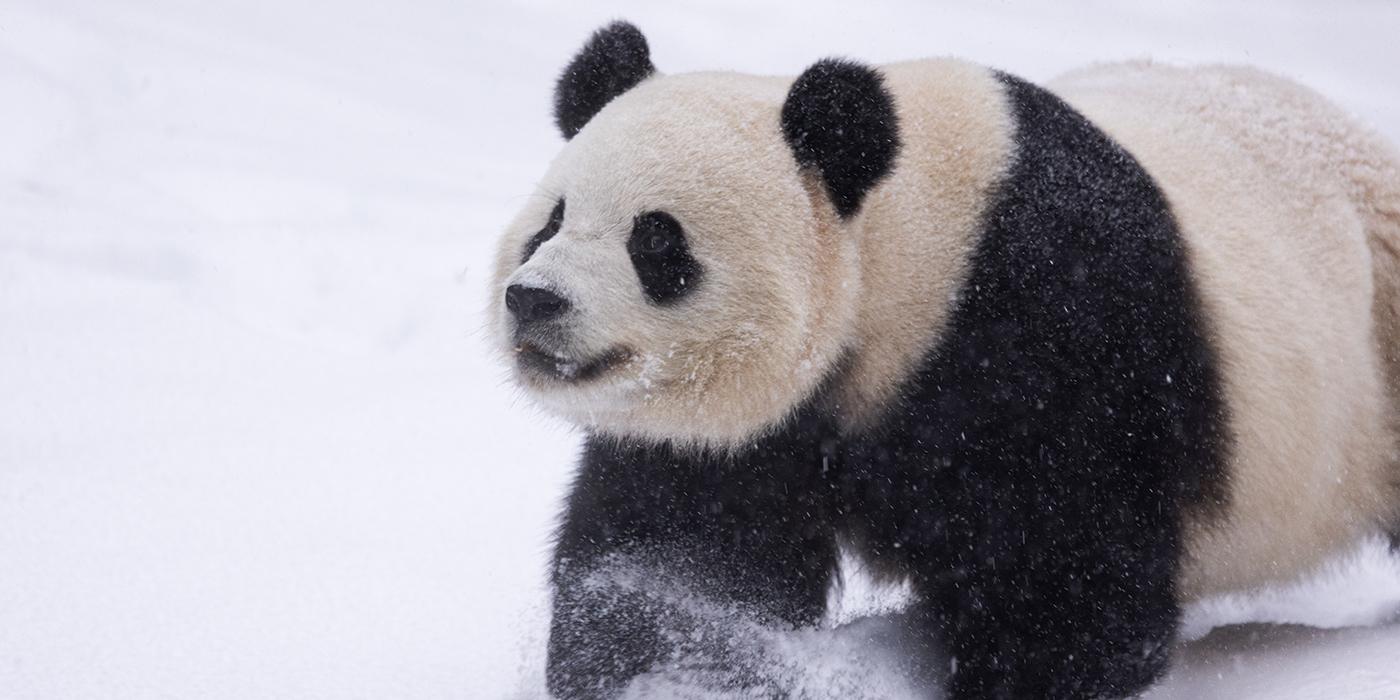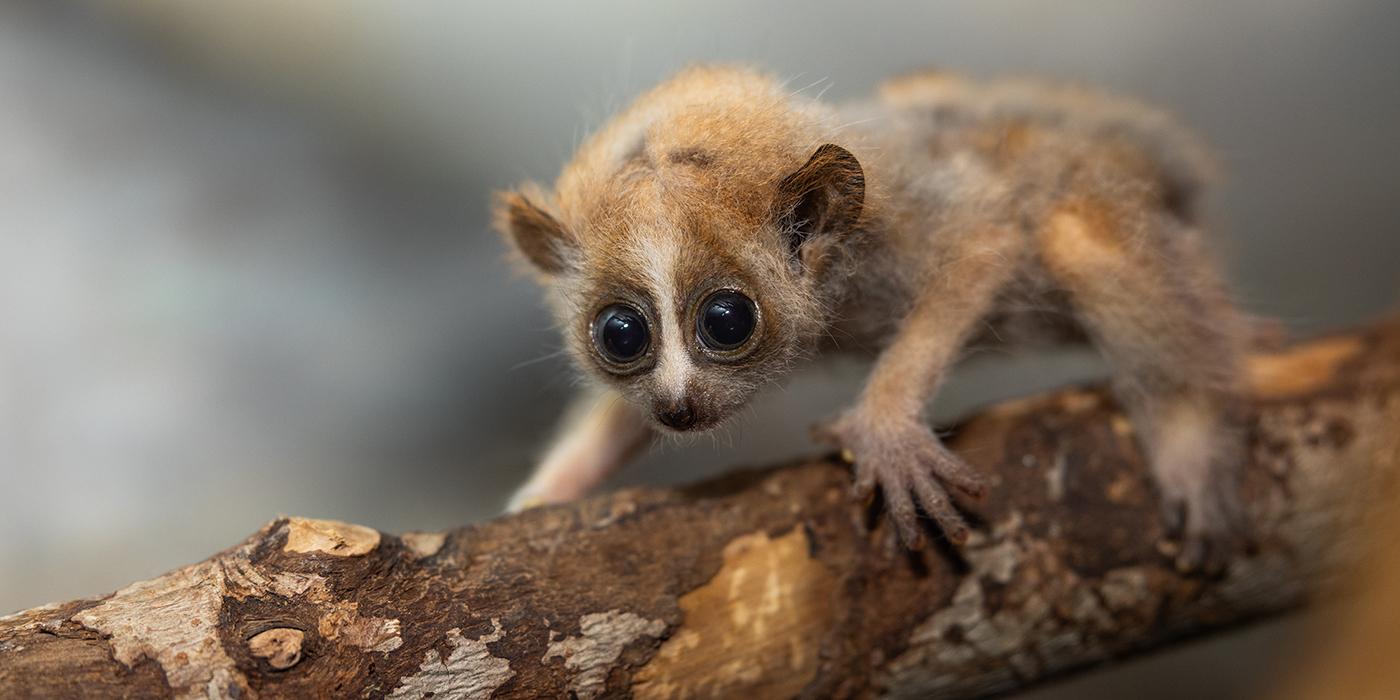Litter of Five Cheetah Cubs Are Born at Front Royal Campus, Smithsonian’s National Zoo and Conservation Biology Institute
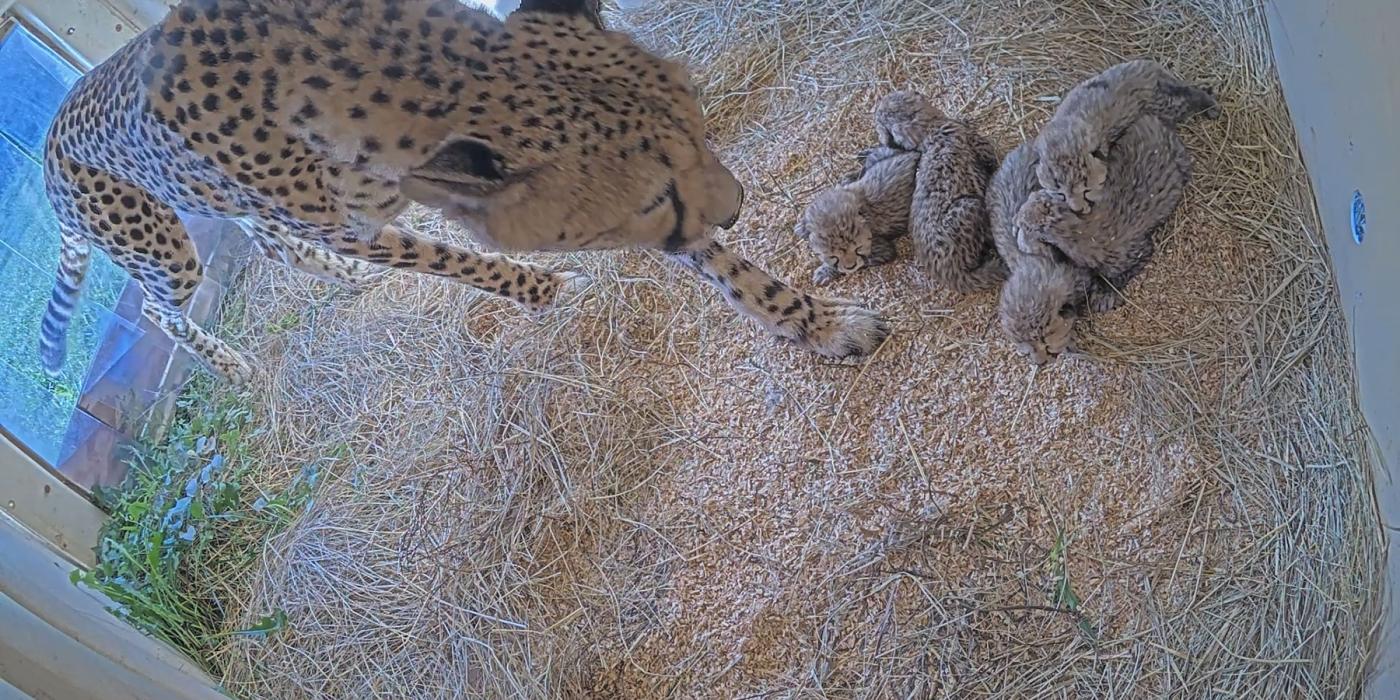
Carnivore keepers at the Smithsonian’s National Zoo and Conservation Biology Institute (NZCBI) in Front Royal, Virginia, are celebrating a litter of five cheetah cubs born to 8-year-old adult female Echo Tuesday, Sept. 12. Viewers can enjoy watching the cubs grow via the Cheetah Cub Cam. Note that Echo may move her cubs out of the den and around her habitat so they may be out of view at times.
Animal care staff will leave Echo to bond with and care for her cubs without interference, but as opportunities arise, staff will perform quick health checks. During a recent weight check, staff confirmed there are three males and two females. The cubs appear to be strong, active, vocal and eating well.
About Echo and Her Cubs:
- Five surviving cubs were born Sept. 12 (a sixth cub did not survive).
- She is a second-time mom; Echo had a litter of four cubs in 2020.
- Echo was born at White Oak Conservation in Florida in 2015.
- There are two potential sires, either Asante or Flash; scientists will perform genetic testing to determine the sire when the cubs are old enough to have blood collected.
- Echo is trained for ultrasounds, which allowed staff to determine she was pregnant July 28.
- The cubs’ genetic data is important for population management as the cubs will eventually enter breeding programs.
NZCBI is part of the Cheetah Breeding Center Coalition—a group of 10 cheetah breeding centers across the United States that aim to create and maintain a sustainable North American cheetah population under human care. These cubs are a significant addition to the Cheetah Species Survival Plan (SSP), as each individual contributes to this program. The SSP scientists determine which animals to breed by considering their genetic makeup, health and temperament, among other factors. Since 2007, NZCBI has celebrated 81 cheetah births; the facility currently houses 30 cheetahs.
Cheetahs live in small, isolated populations mostly in sub-Saharan Africa. Many of their strongholds are in eastern and southern African parks. Due to human conflict, poaching, and habitat and prey-base loss, there are only an estimated 7,000 to 7,500 cheetahs left in the wild. The International Union for Conservation of Nature considers cheetahs vulnerable to extinction.
About the Smithsonian’s National Zoo and Conservation Biology Institute
The Smithsonian’s National Zoo and Conservation Biology Institute (NZCBI) leads the Smithsonian’s global effort to save species, better understand ecosystems and train future generations of conservationists. Its two campuses are home to some of the world’s most critically endangered species. Always free of charge, the Zoo’s 163-acre park in the heart of Washington, D.C., features 2,100 animals representing 400 species and is a popular destination for children and families. At the Conservation Biology Institute’s 3,200-acre campus in Virginia, breeding and veterinary research on 250 animals representing 20 species provide critical data for the management of animals in human care and valuable insights for conservation of wild populations. NZCBI’s more than 300 staff and scientists work in Washington, D.C., Virginia and with partners at field sites across the United States and in more than 30 countries to save wildlife, collaborate with communities and conserve native habitats. NZCBI is a long-standing accredited member of the Association of Zoos and Aquariums.
# # #
Photo caption: Animal care staff at the Smithsonian’s National Zoo and Conservation Biology Institute in Front Royal, Virginia, welcomed a litter of five cheetah cubs to second-time mother Echo Sept. 12.
Photo credit: Smithsonian’s National Zoo and Conservation Biology Institute
Related Species:
Image Gallery
